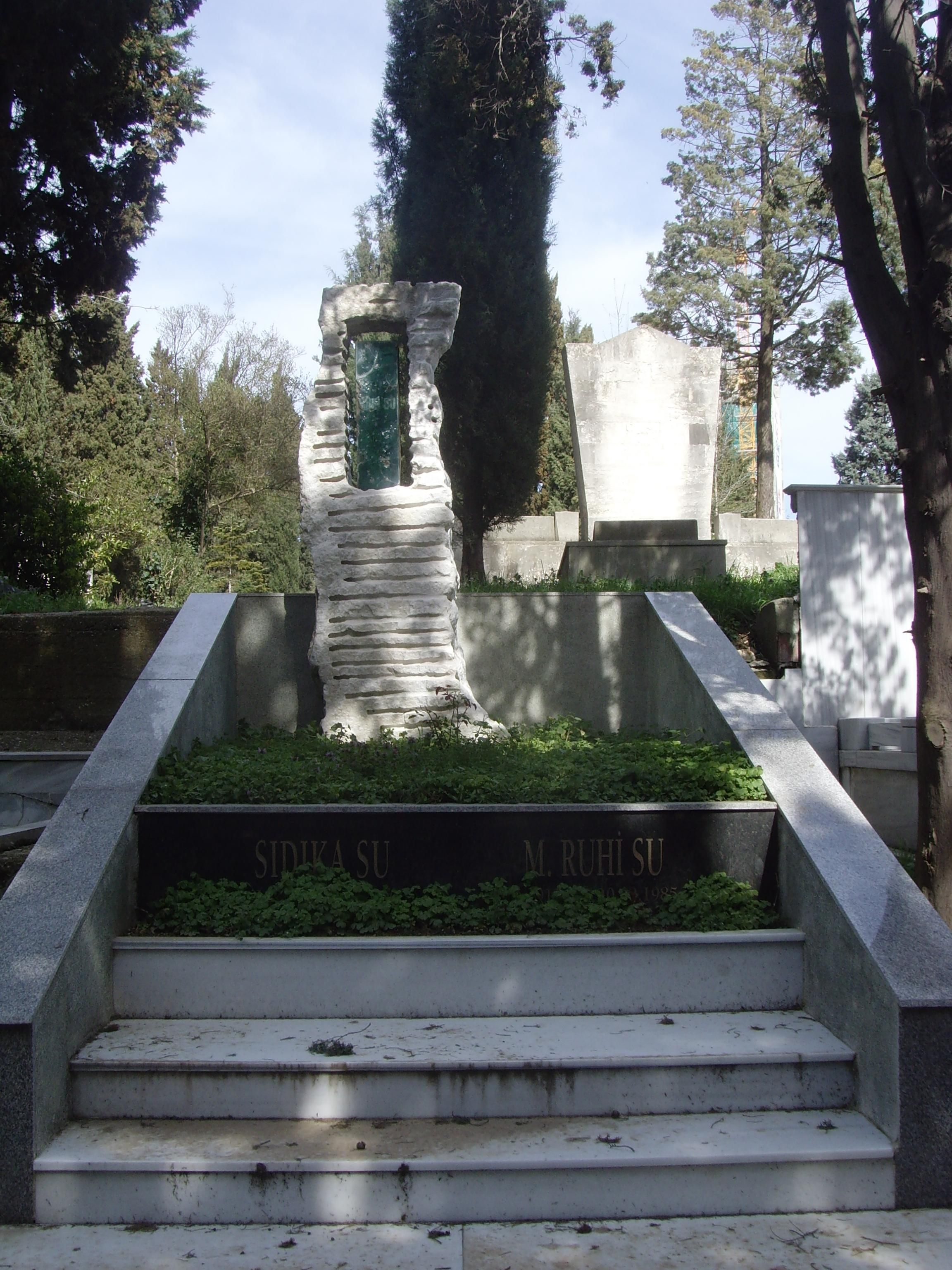Cause of Death: prostate cancer.
Ruhi Su was born 1912 in Van, Turkey. He never knew his parents. He was taken from Van to Adana at a very young age and given to a poor familiy without child.
He started playing violin at the age of ten. In 1936 he graduated from the Teacher's School of Music and in 1942 from the Opera Department of State Conservatory in Ankara. The following ten years, he performed at the State Opera in Ankara as a celebrated bass baritone, appearing in operas such as Madame Butterfly, Fidelio, Tosca and Rigoletto. During his contemporary music education, he also studied Turkish folk music and consequently made regular radio programs, playing saz and singing folk songs, while he worked at the opera. A politically motivated arrest in 1952 and imprisonment for five years ended his career in the opera. After serving his "sentence for thought," he dedicated himself to folk music in his unique way.
While he roamed all over Anatolia from one village to another, he started compiling numerous folk songs. Then, he rearranged and performed them using western techniques. His western music career formed the basis of his approach to interpreting and performing traditional Turkish music. He argued that the authentic music should not be imitated as it is found locally but rather elabrorated into a national music with the enriching support of the international music, perceiving it as a contemporary of Atahualpa Yupanqui and Pete Seeger.
Ruhi Su combined his efforts of creating a national awareness of the rich Anatolian culture with his compositions based on texts of Sufi poets Yunus Emre and Pir Sultan Abdal and other Anatolian poets like Köroðlu, Karacaoðlan, and Dadaloðlu. He also established and trained a choir in the 1970s and conducted them in many concerts and recordings. His approach in bringing forth the ignored suffering of the oppressed and his love of humankind in his musical work has gained a great respect and support from his audience and had a deep effect on many musicians, who paved the path to a more open-minded society.
Cause of Death: prostate cancer.
Ruhi Su was born 1912 in Van, Turkey. He never knew his parents. He was taken from Van to Adana at a very young age and given to a poor familiy without child.
He started playing violin at the age of ten. In 1936 he graduated from the Teacher's School of Music and in 1942 from the Opera Department of State Conservatory in Ankara. The following ten years, he performed at the State Opera in Ankara as a celebrated bass baritone, appearing in operas such as Madame Butterfly, Fidelio, Tosca and Rigoletto. During his contemporary music education, he also studied Turkish folk music and consequently made regular radio programs, playing saz and singing folk songs, while he worked at the opera. A politically motivated arrest in 1952 and imprisonment for five years ended his career in the opera. After serving his "sentence for thought," he dedicated himself to folk music in his unique way.
While he roamed all over Anatolia from one village to another, he started compiling numerous folk songs. Then, he rearranged and performed them using western techniques. His western music career formed the basis of his approach to interpreting and performing traditional Turkish music. He argued that the authentic music should not be imitated as it is found locally but rather elabrorated into a national music with the enriching support of the international music, perceiving it as a contemporary of Atahualpa Yupanqui and Pete Seeger.
Ruhi Su combined his efforts of creating a national awareness of the rich Anatolian culture with his compositions based on texts of Sufi poets Yunus Emre and Pir Sultan Abdal and other Anatolian poets like Köroðlu, Karacaoðlan, and Dadaloðlu. He also established and trained a choir in the 1970s and conducted them in many concerts and recordings. His approach in bringing forth the ignored suffering of the oppressed and his love of humankind in his musical work has gained a great respect and support from his audience and had a deep effect on many musicians, who paved the path to a more open-minded society.
Family Members
Sponsored by Ancestry
Advertisement
Advertisement






